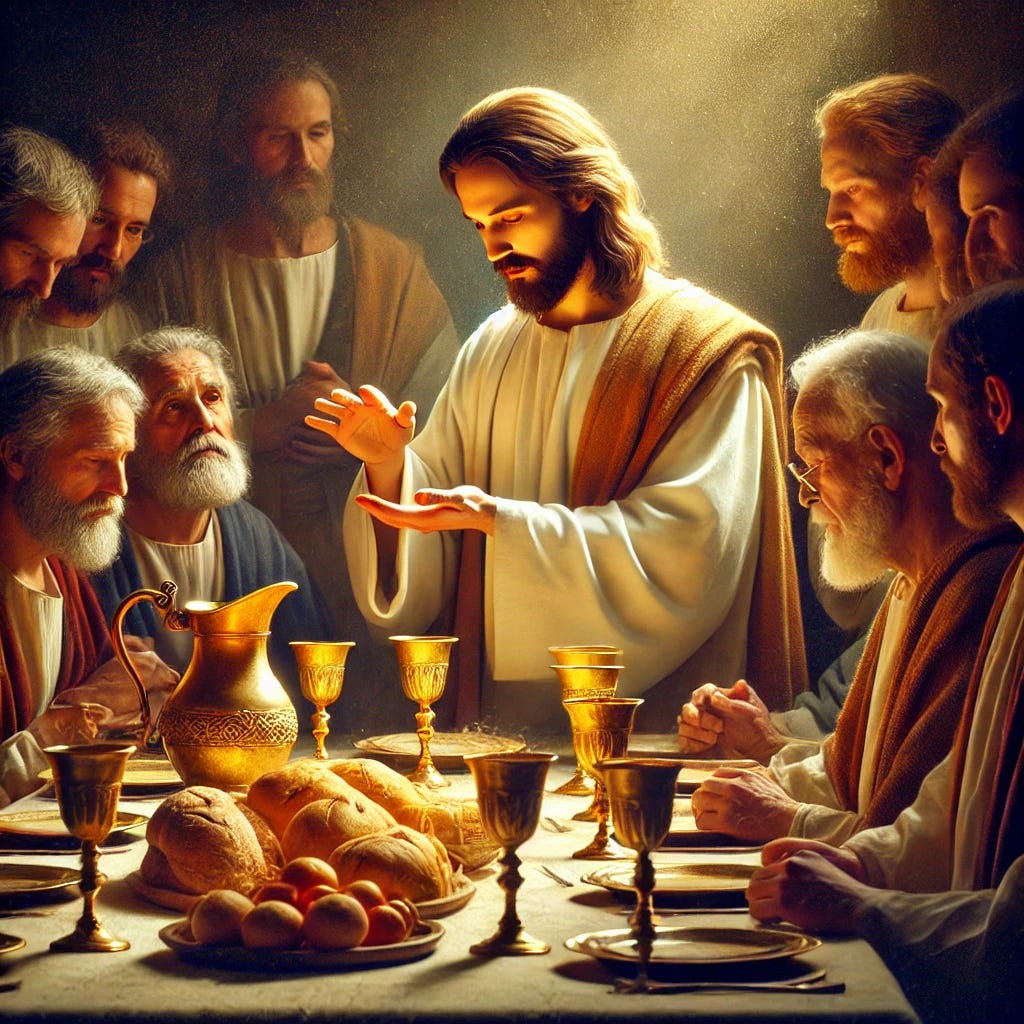Breaking Bread: Early Christians Believed the Eucharist Is More Than a Symbol and why that's important
Understanding the basics of the Eucharist for Mormon readers
Introduction
Communion— sharing bread and wine per Christ’s instructions at the last supper —holds deep spiritual significance for Christians. Communion refers to a deep connection or communication with God and the divine. While Latter-day Saints view communion as a symbolic remembrance, the historical Christian understanding reveals a deeper understanding and significance that dates back to the earliest days of Christianity.
Historical Origins of the Eucharist
The practice of the Eucharist originates directly from Jesus Christ's words and actions during the Last Supper. In the Gospel of Luke, Christ explicitly states
19 And he took bread, and gave thanks, and brake it, and gave unto them, saying, This is my body which is given for you: this do in remembrance of me.
20 Likewise also the cup after supper, saying, This cup is the new testament in my blood, which is shed for you.
Early Christian Understanding
Early Christian writings demonstrate a consistent belief in the real presence of Christ (his body and blood) in the Eucharistic elements. Apostolic Church fathers from the first and second centuries—direct successors to the apostles—consistently taught that the bread and wine were not merely symbols but truly became the body and blood of Christ (in a spiritual sense.)
The act of bread and wine physically or meta-physically transforming into the actual body and blood of Christ is called by Roman Catholics transubstantiation. Transubstantiation is an attempt via a metaphysical explanation to rationalize how the real presence comes to be in the bread and wine.
Transubstantiation is not the same as a “real presence of Christ” as the latter only emphasizes the presence of Christ’s energies (remember the article on Grace where we looked at the energies/essence distinction) in the final product. Some, like Catholics/Orthodox, and some “high church” protestants, like Lutherans and Anglicans/Episcopalians also believe in the real presence of Christ in the Eucharist. Some, protestant or protestant derived groups like Baptists, Pentecostals, Mennonites, Quakers, LDS, Jehovah’s Witnesses, and Adventists, do not believe in the real presence of Christ in the Eucharist.
The early Apostolic Church Fathers wrote extensively about the Eucharist, affirming the Real Presence of Christ in the sacrament. The term “transubstantiation” (defined in roman catholic scholastic theology after the great schism using Aristotelian philosophical concepts) is not explicitly used in these early writings; however their teachings support the belief that the bread and wine become the body and blood of Christ in a mysterious and profound way in which Christ is then found within the eucharist. Here are key quotes from early Christian leaders on the Real Presence:




